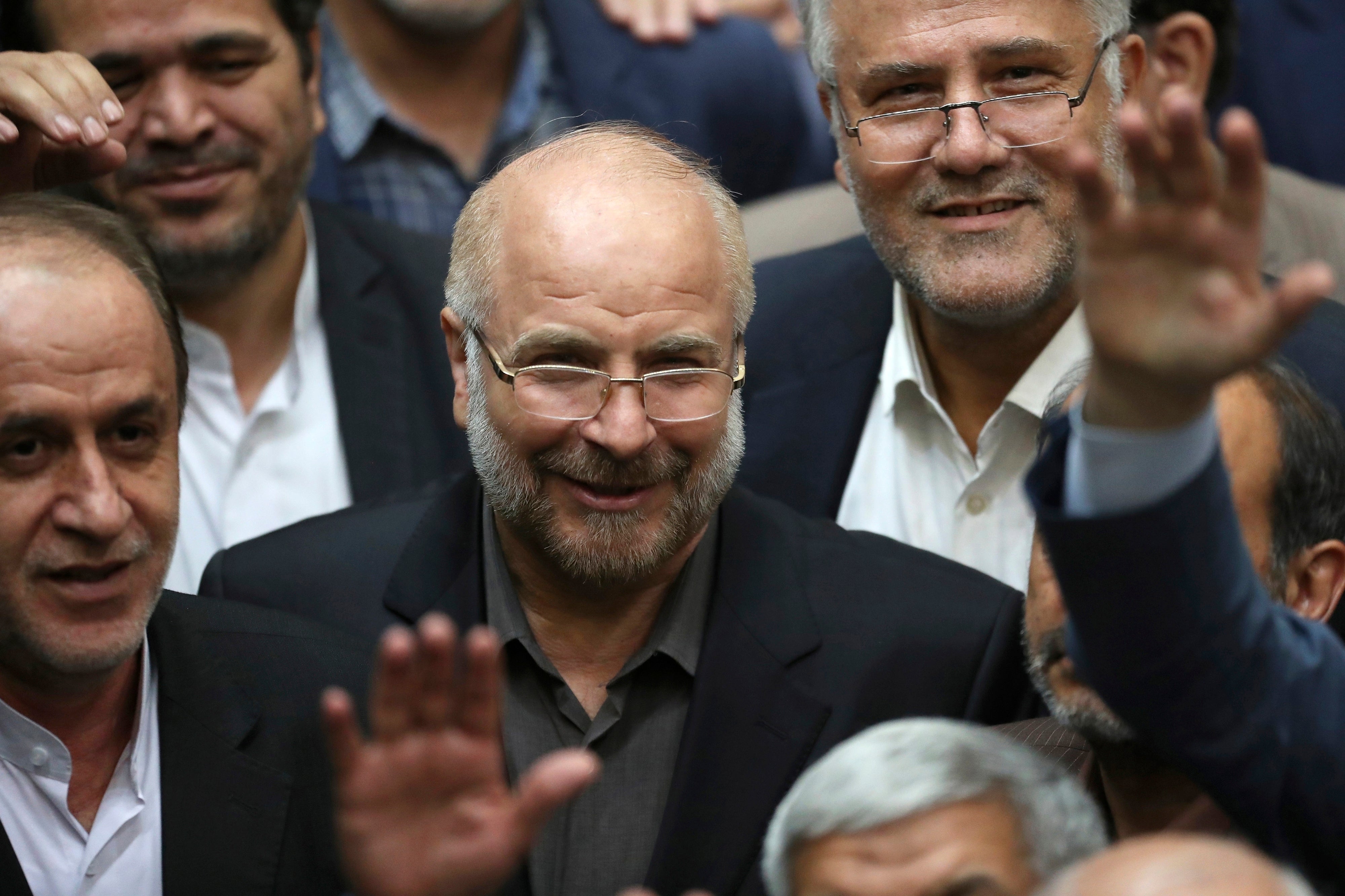Iran parliament speaker contracts virus as infections surge
Iran’s parliament speaker says he has tested positive for the coronavirus, joining a growing list of Iranian officials infected in the Middle East’s worst outbreak

Your support helps us to tell the story
From reproductive rights to climate change to Big Tech, The Independent is on the ground when the story is developing. Whether it's investigating the financials of Elon Musk's pro-Trump PAC or producing our latest documentary, 'The A Word', which shines a light on the American women fighting for reproductive rights, we know how important it is to parse out the facts from the messaging.
At such a critical moment in US history, we need reporters on the ground. Your donation allows us to keep sending journalists to speak to both sides of the story.
The Independent is trusted by Americans across the entire political spectrum. And unlike many other quality news outlets, we choose not to lock Americans out of our reporting and analysis with paywalls. We believe quality journalism should be available to everyone, paid for by those who can afford it.
Your support makes all the difference.Iran’s parliament speaker said Wednesday that he has tested positive for the coronavirus, joining a growing list of top Iranian officials infected in the Middle East’s worst outbreak.
Mohammad Bagher Ghalibaf tweeted that he received the news after one of his colleagues tested positive for the virus. He said he would continue to carry out his duties from self-quarantine. Earlier this month, he was on state TV visiting a coronavirus ward in one of capital's overwhelmed hospitals to show support.
“I decided to appear in the hospital to see problems from a close distance,” Ghalibaf told local media from the ward in Tehran “Supervising is the main duty of parliament.”
Iran emerged early on as a global epicenter of the pandemic and has struggled to stop the virus' rapid spread. The government, desperate to salvage an economy reeling from severe American sanctions, has been loath to order business closures even as infection rates reach new heights.
Iran's outbreak has reportedly killed over 32,000 people, the highest toll in the Middle East and in a clear sign of its scope, dozens of top officials have fallen ill. At least 30 lawmakers have tested positive in recent months, according to local media, and a senior adviser to the country’s supreme leader has died. Earlier this month, the head of the country's atomic energy organization and the vice president in charge of budget and planning both contracted the virus.
Iran’s former parliament speaker, Ali Larijani, tested positive for the virus in April and returned to work after convalescing for three weeks. Ghalibaf took over his post in early June.
As infections surge, filling the country's hospitals and driving up its death toll, Iran’s parliament has continued to hold regular sessions. Lawmakers wear masks but tend not to practice social distancing. When President Hassan Rouhani decided to skip a parliamentary vote this fall out of concern for his health, he faced intense backlash from hard-line lawmakers who demanded he attend regardless.
The timing of the pandemic has proved disastrous for Iran's economy, which is buckling under U.S. sanctions re-imposed in 2018 after the Trump administration withdrew from the nuclear deal between Iran and world powers.